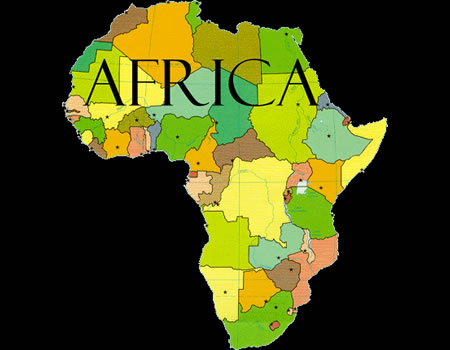Twenty-six notable leaders who attended the meeting in Lagos included the British Prime Minister, Sir Harold Wilson, Lester Pearson of Canada, Jomo Kenyatta of Kenya, Sir DaudaJawara of the Gambia, President Archbishop Makarious of Cyprus, the Jamaican Prime Minister, Donald Sangster, Dr. Hastings Kamuzu Banda of Malawi, Dr. Borg Olivier of Malta, Dr. Kwame Nkrumah of Ghana, Lee Kuan Yew of Singapore, Sir Albert Margai of Sierra Leone and Dr. Milton Obote of Uganda. Heavy security was provided by the Israelis in Lagos during the conference held between January 11 and 13, 1966. Notable journalists all over the world covered the meeting. At that time, Nigeria was the world. The second All-African Games was held in Lagos between January 7 to January 18 1973 at the National Stadium, Surulere, Lagos. Pele, Abebe Bikila, Muhammad Ali, Jesse Owens attended the ceremony with Kip Keino of Kenya and Filbert Bayi of Tanzania in competition. John Akii-Bua (1949-1997) of Uganda broke the World record in 400metres hurdles during the competition.
That was long time ago. Regrettably, no other beer parlour in the country today is better than the National Stadium in Surulere, Lagos. You need to be there now, you will be wondering whether it is a club house or a stadium. It is over 40 years since Nigeria hosted the Second World Black and African Festival of Arts and Culture otherwise known as FESTAC. The Festival was held in Lagos between January 17 and January 31, 1977. Africa came to Nigeria that time and indeed the World came to Nigeria. Thirty-seven African countries participated in the Festival including non-African countries like Brazi,Cuba, United Kingdom, Ireland, United States of America, Belgium, Finland, France and Austalia. Notable African scholars including Professor Alfred Esimatemi Opubor, Professor Akinwande Soyinka (83), Professor Festus Jacob Adeniyi Ajayi (1929-2014), L.H. Ofosu-Appiah, B.A.Ogot, Bayona Ba Meya, Pascal N’guessan Dikibie, M. Ron Karenga, Thoephile Obenga, Joseph Ki-Zerbo and Professor Ayo Bamgbose all presented papers during the festival.
The chairman of the festival then was Nigeria’s Minister for Special Duties Admiral O.P. Fingesi now a member of the Board of Trustees, Port-Harcourt Polo Club while the then Minister of Education, Colonel Ahmadu Alli was the Chairman of the Colloquim of the Festival. In opening the festival, the then Head of State, General Olusegun Obasanjo said: “In fact, the Colloquium should be seen not as an exercise in revalorisation but entirely as a means of achieving mental liberation. I say this because the purveyor of intellect and the stock of intellectual property are key variables in the development of our minds and in enabling us to come to terms with our environment. This is not to suggest that technical bureaucratic and commercial trading post-agents do not count in this process. Much however turns on the application of intellect to our activists. To the extent that we can achieve originality in our thoughts the developmental gap which today consumes all our energy as a people will be wiped out and we would join the ranks of the leaders in technological creativity in the hope of raising the standard of living of our people.”
The festival was originally planned by General Yakubu Gowon but because he was toppled on July 29, 1975, he could not hold the festival. The gathering was one of the best that Nigeria ever had. That was over 40 years ago when we knew how to do things big. Nigeria benefitted from the festival during which we built an estate called FESTAC. Today,the estate and the venue where we hosted the festival-National Theatre have become dilapidated and abandoned. The FESTAC Village which was planned to be a model city is fast becoming a jungle city now. On October 16 1979, President Shehu Shagari led Africa to address the United Nations General Assembly in New York. I covered the event for The Punch in Manhattan. I still remember his golden voice that day. Major American newspapers carried the text of President Shagari’s Address with the headline “Nigeria speaks for Africa”. He declared on that day that“Africa’s bears the scars of a long history of spoliation and deprivation, of the ravages of the slave trade and foreign aggression, of both political and economic injustices. The current crisis in the world economy is wreaking havoc in Africa… I believe that the time for the international community to address itself to the serious issue of reparation and restitution for Africa.
“It is pertinent to observe that there is hardly any country outside the continent which has not, in one way or another, benefited from the exploitation of the human and natural resources of Africa. In the wake of your important deliberations concerning the new international development strategy and the global negotiations, I call upon the August Assembly to launch a decade of reparation and restitution for Africa as a matter plan for the economic recovery of the continent. I make this call with a serious sense of responsibility. Restructuring the world economic system to conform to the dictates of the new international economic order will help. But this will be in the long term.”
- Teniola, a former director at the Presidency, lives in Lagos.





